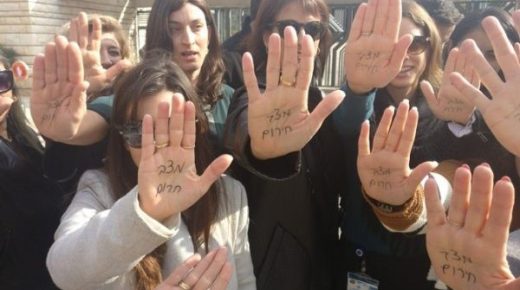Lectures & Panels Standing Up to Gender Violence: The Legal Context of Contemporary Feminist Struggle in Israel/Palestine

Professors Tally Kritzman-Amir and Sarah Ilhmoud examine recent trends in gender-based violence in Israel-Palestine and the various state policies and responses, especially in relation to vulnerable communities of Palestinians and African refugees.
Event Overview
Please join us for a discussion of gender-based violence and feminist struggles for gender justice and equality in Israel-Palestine. Professors Tally Kritzman-Amir and Sarah Ilhmoud will examine recent trends in gender-based violence in Israel-Palestine and the various state policies and responses, especially in relation to vulnerable communities of Palestinians and African refugees. The discussion will cover the legal struggles of the feminist movement in Israel in the context of recent state legislative and policy initiatives that often contribute to the increased vulnerability of Palestinian and African women.
Dr. Tally Kritzman-Amir is a Senior Lecturer of immigration and international law at the College of Law and Business, Israel. She will teach in the Harvard Sociology Department during academic year 2018–19 as an Israel Institute fellowship recipient. Kritzman-Amir received her LLB from Tel Aviv University, magna cum laude (2002). She clerked for Justice Mishael Cheshin in the Israeli Supreme Court, and she has been a member of the Israeli bar since 2004. Kritzman-Amir received her PhD from Tel Aviv University after graduating from the direct PhD program, and wrote her thesis on “Socio-economic refugees” (2008). She was a Fox International Fellow at Yale University (2006–2007), a Hauser Research scholar at NYU (2008-9), Polonsky Fellow at the Van Leer Jerusalem Institute (2010–2015), a Visiting Fellow at Harvard Law School’s Human Rights Program, and a Scholar-in-Residence at the Hadassah Brandeis Institute.
Dr. Sarah Ihmoud is a Postdoctoral Associate in Anthropology and Women’s, Gender and Sexuality Studies at Boston University. Her fieldwork is centered in the Middle East and Latin America regions, where she uses ethnographic research methods to investigate gendered experiences of militarization and violence in colonial and conflict contexts. Ihmoud’s current scholarship considers the relationship between structural and internal patriarchal power in borderlands areas—where national interests and spaces overlap, state power is most heavily contested, and new political, legal, and cultural norms are often created. Her work draws on the insights of black, native and third world feminists to understand intimate, embodied experiences of racialized and gendered violence and access to justice.
Co-hosted by the Julis-Rabinowitz Program on Jewish and Israeli Law and the Program on Law and Society in the Muslim World. Co-sponsored by the Human Rights Program, Harvard Immigration and Refugee Clinic, Progressive Jewish Alliance, HLS Advocates, and the Religious Literacy Program at Harvard Divinity School.